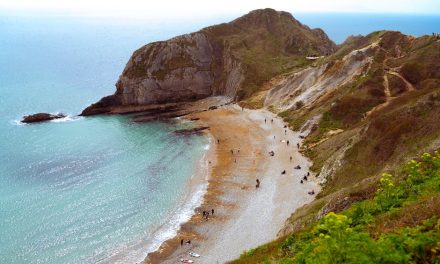Table of Contents
From Scientist to Politician: Angela Merkel’s Path to Leadership – A Journey of Knowledge and Governance.
Introduction
Angela Merkel, a prominent figure in global politics, has had a remarkable journey from scientist to politician. Her path to leadership is a testament to her determination, intellect, and adaptability. This introduction will delve into the key milestones and experiences that shaped Merkel’s transformation from a physicist to the Chancellor of Germany, highlighting her unique qualities and achievements along the way.
Early Life and Education of Angela Merkel

Angela Merkel, the current Chancellor of Germany, is widely regarded as one of the most influential leaders in the world. Her journey to political leadership began with a strong foundation in science and a passion for understanding the world around her.
Born on July 17, 1954, in Hamburg, West Germany, Angela Dorothea Kasner (later known as Angela Merkel) grew up in a modest household. Her father, Horst Kasner, was a Lutheran pastor, and her mother, Herlind Jentzsch, was an English and Latin teacher. Merkel’s parents instilled in her a love for learning and a strong work ethic from an early age.
Merkel’s interest in science was evident from her early years. She excelled in mathematics and physics, subjects that would later shape her career. After completing her secondary education, Merkel went on to study physics at the University of Leipzig. During her time at university, she became involved in the Free German Youth (FDJ), the official youth movement of East Germany.
Merkel’s involvement in the FDJ allowed her to develop leadership skills and gain experience in public speaking. It was during this time that she first encountered the complexities of East German politics. Despite the limitations imposed by the communist regime, Merkel remained committed to her studies and graduated with a degree in physics in 1978.
After completing her undergraduate studies, Merkel pursued a career in research at the Central Institute for Physical Chemistry at the Academy of Sciences in East Berlin. Her work focused on quantum chemistry, a field that explores the behavior of atoms and molecules at the molecular level. Merkel’s research was highly regarded, and she published several papers during her time at the institute.
While Merkel found fulfillment in her scientific pursuits, she also became increasingly aware of the political climate in East Germany. The oppressive regime and lack of personal freedoms motivated her to become more politically active. In 1989, as the Berlin Wall fell and the reunification of Germany became imminent, Merkel joined the newly formed Democratic Awakening party.
Merkel’s involvement in politics grew rapidly, and she quickly rose through the ranks of the party. In 1990, she was elected to the People’s Chamber of East Germany, the country’s first and only freely elected parliament. Merkel’s scientific background and analytical thinking made her a valuable asset in the political arena, and she soon gained a reputation for her pragmatic approach to problem-solving.
As East and West Germany merged, Merkel’s political career continued to flourish. She joined the Christian Democratic Union (CDU), a center-right political party, and became a prominent figure within the party. In 2000, Merkel was elected as the CDU’s chairwoman, making her the first woman to hold the position.
Merkel’s scientific background continued to shape her leadership style. She approached politics with a methodical and analytical mindset, relying on evidence-based decision-making. Her ability to navigate complex issues and find common ground with different political factions earned her respect from both her colleagues and the German public.
In 2005, Merkel made history once again when she became the first female Chancellor of Germany. Her leadership during the global financial crisis and her handling of the European debt crisis solidified her reputation as a skilled and pragmatic leader. Merkel’s commitment to science and evidence-based decision-making has been evident throughout her tenure as Chancellor, particularly during the COVID-19 pandemic.
Angela Merkel’s journey from scientist to politician is a testament to her determination, intellect, and leadership skills. Her early life and education in science provided her with a strong foundation, while her involvement in politics allowed her to apply her analytical thinking to real-world challenges. As she prepares to step down as Chancellor in 2021, Merkel leaves behind a legacy of leadership and a lasting impact on German and global politics.
Angela Merkel’s Career in Science
Angela Merkel, the current Chancellor of Germany, is widely regarded as one of the most influential leaders in the world. However, before she entered the world of politics, Merkel had a successful career in science. Her background in physics and her analytical thinking skills have played a crucial role in shaping her leadership style and decision-making abilities.
Merkel’s journey in science began in the 1970s when she enrolled at the University of Leipzig to study physics. She showed exceptional talent and dedication, which led to her being awarded a doctorate in physics in 1986. Her research focused on quantum chemistry, a field that explores the behavior of atoms and molecules at the quantum level.
During her time as a scientist, Merkel worked at the Central Institute for Physical Chemistry at the Academy of Sciences in East Berlin. She was involved in groundbreaking research, particularly in the area of chemical reactions and spectroscopy. Her work was highly regarded, and she published several papers in prestigious scientific journals.
Merkel’s scientific background provided her with a solid foundation in critical thinking and problem-solving. These skills have been invaluable in her political career, where she has had to navigate complex issues and make difficult decisions. Her ability to analyze data and consider multiple perspectives has earned her a reputation as a pragmatic and rational leader.
Furthermore, Merkel’s scientific training has influenced her leadership style. She is known for her meticulous attention to detail and her methodical approach to decision-making. She carefully weighs the pros and cons of each option before making a choice, ensuring that she considers all possible outcomes. This approach has earned her respect both domestically and internationally, as it demonstrates her commitment to making informed and thoughtful decisions.
Merkel’s scientific background has also shaped her approach to problem-solving. She is known for her ability to break down complex issues into manageable parts and find practical solutions. This skill has been particularly evident in her handling of the European debt crisis and the refugee crisis. Merkel’s analytical thinking and ability to find common ground have been instrumental in reaching consensus and finding workable solutions.
In addition to her scientific expertise, Merkel’s experience as a scientist has also given her a unique perspective on the importance of evidence-based policymaking. She understands the value of relying on data and research to inform decision-making, rather than relying solely on ideology or personal beliefs. This approach has made her a respected and trusted leader, as she is seen as someone who makes decisions based on facts and evidence.
In conclusion, Angela Merkel’s career in science has played a significant role in shaping her leadership style and decision-making abilities. Her background in physics has provided her with critical thinking skills, analytical thinking, and a methodical approach to problem-solving. These qualities have made her a respected and influential leader both domestically and internationally. Merkel’s scientific training has also instilled in her a commitment to evidence-based policymaking, ensuring that her decisions are grounded in data and research. Overall, her journey from scientist to politician has been a testament to the value of a diverse skill set and the importance of bringing different perspectives to leadership roles.
Transitioning into Politics: Angela Merkel’s Journey
Transitioning into Politics: Angela Merkel’s Journey
Angela Merkel, the Chancellor of Germany, is widely regarded as one of the most influential leaders in the world. However, before she entered the political arena, Merkel had a successful career as a scientist. Her transition from the world of science to the world of politics was not an easy one, but it is a testament to her determination and leadership skills.
Merkel’s journey into politics began in 1989, when the Berlin Wall fell and Germany was reunified. At the time, she was working as a physicist at the Central Institute for Physical Chemistry at the Academy of Sciences in East Berlin. The reunification of Germany brought about a wave of political change, and Merkel saw an opportunity to make a difference.
In 1990, Merkel joined the newly formed Democratic Awakening party, which later merged with the Christian Democratic Union (CDU). She quickly rose through the ranks of the party, thanks to her intelligence and strong work ethic. In 1994, she was elected to the Bundestag, the German federal parliament, and became the Minister for Women and Youth in Chancellor Helmut Kohl’s government.
Merkel’s time as Minister for Women and Youth allowed her to gain valuable experience in politics and build a network of supporters. She was known for her pragmatic approach and ability to find common ground with people from different political backgrounds. These skills would serve her well in the years to come.
In 2000, Merkel was elected as the CDU’s leader, becoming the first woman to hold this position. This was a significant milestone for both Merkel and German politics, as it signaled a shift towards a more inclusive and diverse leadership. Merkel’s leadership style was characterized by her analytical thinking, attention to detail, and ability to make tough decisions.
In 2005, Merkel made history once again when she became the first female Chancellor of Germany. Her election marked a turning point in German politics, as she brought a fresh perspective and a new approach to governance. Merkel’s leadership during the financial crisis of 2008 and the subsequent Eurozone crisis earned her international acclaim and solidified her position as a respected global leader.
Throughout her tenure as Chancellor, Merkel has faced numerous challenges, both domestically and internationally. However, she has consistently demonstrated her ability to navigate complex political landscapes and find solutions to difficult problems. Her leadership style, characterized by her calm demeanor and willingness to listen to different perspectives, has earned her the respect and admiration of leaders around the world.
Merkel’s journey from scientist to politician is a testament to her resilience and determination. She has shown that it is possible to transition from one field to another and excel in both. Her scientific background has undoubtedly shaped her approach to politics, as she values evidence-based decision-making and rational thinking.
In conclusion, Angela Merkel’s path to leadership is a remarkable story of perseverance and adaptability. Her transition from the world of science to the world of politics is a testament to her leadership skills and ability to make a positive impact. Merkel’s journey serves as an inspiration to aspiring leaders, showing that with hard work and determination, anything is possible.
Leadership Style and Impact of Angela Merkel in Politics
Angela Merkel, the Chancellor of Germany, is widely regarded as one of the most influential leaders in modern politics. Her leadership style and impact on the political landscape have been shaped by her background as a scientist and her unique approach to governance.
Merkel’s leadership style can be characterized as pragmatic and analytical. As a trained physicist, she brings a scientific mindset to her decision-making process. She carefully weighs evidence and considers all possible outcomes before making a decision. This approach has earned her a reputation for being cautious and methodical, but also for being able to navigate complex political challenges with ease.
One of the key aspects of Merkel’s leadership style is her ability to build consensus. She understands the importance of bringing people together and finding common ground. This is particularly evident in her approach to coalition building, as she has successfully led coalitions with different political parties throughout her tenure as Chancellor. By fostering collaboration and compromise, Merkel has been able to maintain stability and govern effectively in a highly fragmented political landscape.
Merkel’s leadership style is also characterized by her calm and composed demeanor. She rarely displays strong emotions or engages in confrontational rhetoric. Instead, she prefers to approach political challenges with a level-headed and rational mindset. This has earned her respect both domestically and internationally, as she is seen as a reliable and steady leader in times of crisis.
In terms of impact, Merkel’s leadership has had a profound effect on German politics and the European Union as a whole. Under her leadership, Germany has emerged as a key player in European affairs, with Merkel often taking the lead in negotiations and shaping the direction of the EU. Her commitment to European integration and her ability to build consensus have been instrumental in maintaining stability and promoting economic growth in the region.
Merkel’s leadership has also had a significant impact on domestic policy. She has implemented a number of reforms aimed at modernizing the German economy and promoting social welfare. Her focus on fiscal responsibility and economic stability has helped Germany weather the global financial crisis and maintain a strong position in the global economy.
Furthermore, Merkel’s leadership has been marked by her commitment to human rights and social justice. She has been a vocal advocate for gender equality and has worked to promote diversity and inclusion in German society. Her decision to open Germany’s borders to refugees during the European migrant crisis was a controversial one, but it demonstrated her commitment to humanitarian values and her willingness to take bold action in the face of adversity.
In conclusion, Angela Merkel’s leadership style and impact in politics have been shaped by her background as a scientist and her unique approach to governance. Her pragmatic and analytical mindset, ability to build consensus, and commitment to stability and social justice have made her one of the most respected and influential leaders of our time. Whether it is her approach to coalition building, her calm demeanor in times of crisis, or her commitment to European integration, Merkel’s leadership has left an indelible mark on German politics and the global stage.
Q&A
1. What is Angela Merkel’s background?
Angela Merkel has a background in science, specifically in physics.
2. How did Angela Merkel transition from science to politics?
Angela Merkel transitioned from science to politics by becoming involved in the Democratic Awakening party in East Germany during the late 1980s. She later joined the Christian Democratic Union (CDU) and rose through the ranks to become the party’s leader.
3. When did Angela Merkel become the Chancellor of Germany?
Angela Merkel became the Chancellor of Germany in 2005.
4. What are some notable achievements of Angela Merkel’s political career?
Some notable achievements of Angela Merkel’s political career include her leadership during the European financial crisis, her role in managing the refugee crisis in 2015, and her efforts to strengthen Germany’s economy.
Conclusion
In conclusion, Angela Merkel’s journey from scientist to politician showcases her remarkable path to leadership. Her background in physics provided her with a unique perspective and analytical skills that she applied to her political career. Merkel’s ability to adapt, her pragmatic approach, and her commitment to consensus-building have made her one of the most influential leaders in modern politics. Her success as the Chancellor of Germany for over 15 years is a testament to her leadership abilities and her dedication to serving her country.




